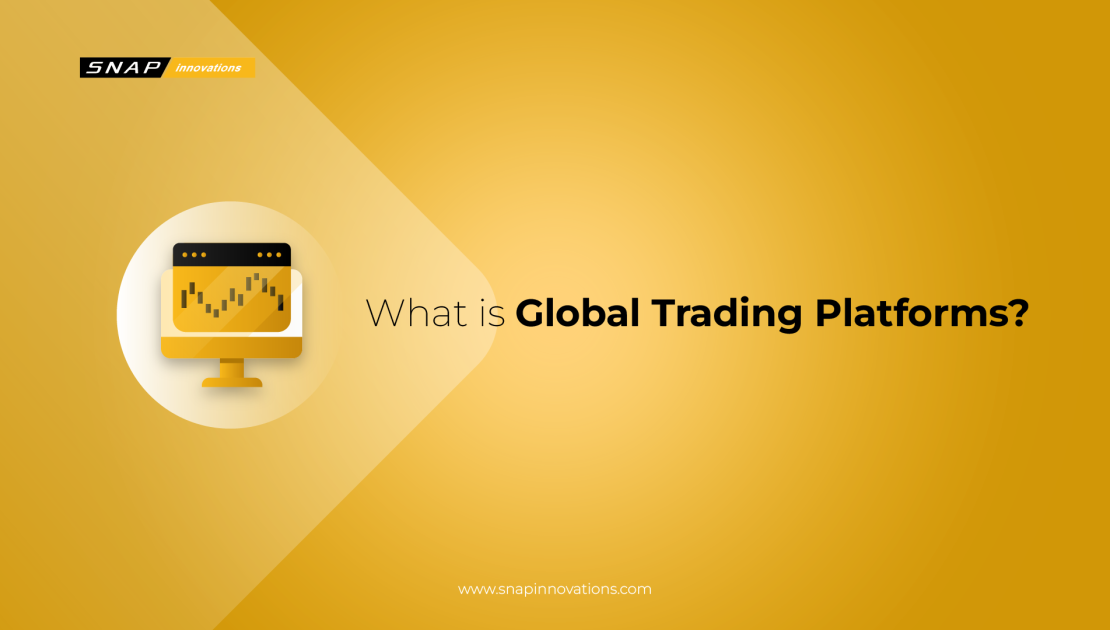In today’s interconnected world, the marketplace has extended beyond national borders. The term ‘global trading platform’ has emerged as a buzzword, reflecting the ease and seamlessness with which one can now trade across countries. This article sheds light on what these platforms are, their implications, and how they’re reshaping the trading scene worldwide.
The dynamism of global trading platforms cannot be overstated, as they are rapidly becoming indispensable tools for investors worldwide. These platforms offer not only accessibility but also a range of features designed to assist both novice and experienced traders in navigating the complex landscape of international trade. From real-time market analytics to diverse investment options, global trading platforms embody the future of trading by providing a consolidated space for global market engagement. With such significant influence, understanding their functionality and benefits is crucial for anyone looking to succeed in the modern trading environment.
What is a global trading platform?
A global trading platform is essentially a digital interface that provides traders and investors the avenue to buy and sell commodities, securities, and other financial instruments on a worldwide scale. Previously, traders were confined to the limitations of their domestic market. But with the advent of these platforms, there’s now access to international markets, often in real-time.
What separates these platforms from conventional trading interfaces is their vast network. They connect various markets, brokers, and financial institutions, creating a melting pot of opportunities for the savvy investor. With the click of a button, you can purchase shares from a startup in Africa, invest in a mutual fund from Europe, or sell bonds from Asia.
Also Read: What Is NFT? Explore the World of Non-Fungible Tokens
The rise of such platforms can be attributed to technological advancements, liberalized trade policies, and the increasing demand for diverse investment avenues. As globalization intensifies, these platforms are set to become the backbone of modern trading.
Advantages of Global Trading Platforms
 1. Diversification of Portfolio
1. Diversification of Portfolio
When you diversify your portfolio through global trading platforms, you significantly decrease the risk associated with putting all your eggs in one basket. Diversification leads to a balance, where the performance of various investments can offset each other. If one market or asset is not performing well, another in a different region or sector that’s thriving can compensate for the losses, leading to greater financial stability and security for the investor.
Global platforms provide access to numerous markets, each with unique opportunities and niches. Investors can explore and invest in various sectors that are not available in their home country. This expanded access allows for strategic investment in niche markets, which might offer higher returns due to their specialized or emerging nature.
2. Access to Emerging Markets
Emerging markets often present opportunities for high returns on investments. These markets, typically in developing countries, might be on the brink of rapid industrialization and hence offer promising prospects for investors. Global trading platforms make it easier for investors to identify and invest in these lucrative opportunities without the need for physical presence or extensive local market knowledge.
Having access to emerging markets also broadens an investor’s horizon, allowing for participation in the growth stories of different economies. This not only provides investment alternatives but also creates a sense of global financial inclusion, where one can contribute to and benefit from economic developments worldwide.
3. Real-time Market Data
The availability of real-time data is crucial for making swift, informed investment decisions. Global trading platforms provide up-to-the-minute information and analytics, helping investors understand market trends, asset performance, and potential investment risks and opportunities. This immediate access to data empowers investors to make timely trades and capitalize on market movements.
Many global trading platforms come equipped with tools and features for predictive analysis, using algorithms and artificial intelligence to forecast market trends. These tools analyze historical data and market conditions to provide investors with predictions on asset performance, aiding in the formulation of effective trading strategies.
4. Extended Trading Hours
With markets around the world operating in different time zones, global trading platforms provide the flexibility to trade at almost any time. This extended access is particularly beneficial for those who trade part-time or have other commitments during regular market hours. Investors can execute trades, respond to market news, and manage their portfolios 24/7, creating opportunities for profit that were previously hard to come by.
Extended trading hours also mean that investors can respond to global events as they happen, rather than waiting for their local market to open. This immediacy is crucial when trading in a market that’s sensitive to global events, allowing investors to react to economic indicators, policy changes, or significant global happenings in real-time.
Points to Consider Before Using a Global Trading Platform
 1. Understand the Fees:
1. Understand the Fees:
Every global trading platform will have a unique fee structure that may include a variety of charges such as transaction fees, maintenance fees, withdrawal fees, and inactivity charges. Transaction fees are often a percentage of each trade you make, while maintenance fees are charges for keeping your account active on the platform. It’s crucial to meticulously review these fees, as they can significantly impact your investment returns. Familiarize yourself with the fine print and understand how each fee applies to your trading activities to avoid unexpected costs.
Before committing to a platform, compare the fee structures of different global trading platforms. Some platforms might offer lower transaction fees but charge higher for account maintenance or inactivity. Conduct a comprehensive comparison to identify a platform whose fee structure aligns with your trading frequency and investment strategy, offering you the best value for your money.
2. Currency Exchange Rates:
When trading internationally, you’ll inevitably encounter fluctuations in currency exchange rates. These fluctuations can affect the value of your investment and the cost of trading. Understanding how currency exchange works and keeping abreast of current exchange rates is vital to anticipate and mitigate the risks associated with currency conversion. Always factor in exchange rate fluctuations when calculating potential profits and losses on international trades.
In addition to being aware of exchange rates, investors should also take into account the fees associated with converting one currency to another. These fees can often be overlooked but may significantly eat into your profits if not considered. Some platforms might offer competitive conversion rates, making them more suitable for traders who frequently invest in markets that use different currencies.
3. Regulatory Differences:
Financial regulations vary considerably from one country to another. Each jurisdiction has its own set of rules and standards governing financial transactions, tax obligations, and investor protections. Navigating through these regulatory environments can be complex, and non-compliance may lead to legal issues and financial losses. Before engaging in global trading, educate yourself on the regulatory landscape of the markets you intend to invest in.
Ensuring that the platform adheres to international compliance standards is crucial. A reputable global trading platform will not only comply with the regulations of its home country but also with international standards and the specific regulations of the countries where it operates. This adherence provides a safety net for investors, as it often means the platform is subject to regular audits and follows best practices in financial reporting, security, and customer protection.
How to Choose the Right Platform
 When embarking on the task of choosing the right global trading platform, commencing with meticulous research is fundamental. Delve deeply into reviews and ratings of various platforms available in the digital sphere. It’s imperative to peruse what both experts and everyday users are saying about each platform. Expert reviews often provide detailed insights about the features, reliability, and cost-effectiveness of a platform, while user reviews offer a glimpse into the practical challenges and benefits experienced by traders like yourself. Pay particular attention to reviews that mirror your trading needs and style, as these will give you a clearer idea of what to expect.
When embarking on the task of choosing the right global trading platform, commencing with meticulous research is fundamental. Delve deeply into reviews and ratings of various platforms available in the digital sphere. It’s imperative to peruse what both experts and everyday users are saying about each platform. Expert reviews often provide detailed insights about the features, reliability, and cost-effectiveness of a platform, while user reviews offer a glimpse into the practical challenges and benefits experienced by traders like yourself. Pay particular attention to reviews that mirror your trading needs and style, as these will give you a clearer idea of what to expect.
Security is non-negotiable when it comes to selecting a trading platform. Opt for a platform that not only demonstrates a commitment to providing robust security protocols but also has a track record to back it up. Security measures should include data encryption, two-factor authentication, and regular system security audits to protect both your investments and sensitive personal information. Look into the platform’s history of security breaches or data leaks, as past incidents can provide valuable insights into its level of security vigilance and responsiveness.
In the dynamic world of trading, a platform that offers an efficient and enjoyable user interface and experience is invaluable. The right platform should present a design that is not only visually pleasing but also user-friendly and intuitive, making navigation straightforward even for novice traders. Pay attention to the layout, accessibility of features, loading speeds, and overall ease of use. Engage with platforms that offer demo accounts or free trials, as this allows you to experience the interface firsthand before making a commitment. If the platform makes trading feel cumbersome or complicated, it might not be the right fit for your needs.
Lastly, never underestimate the importance of stellar customer support. The ideal platform should have a support team that is not only knowledgeable and responsive but also accessible through various means, be it phone, email, or live chat. Responsive customer support is particularly vital during times of trading uncertainties or when technical issues arise. Look for platforms where support is available around the clock, considering the global nature of the market, and observe how swiftly and effectively they respond to queries and concerns. Platforms with a reputation for providing excellent customer support are likely to offer a smoother and more reliable trading experience.
Tips for Success in Global Trading
Remaining informed is a cornerstone for success in global trading. The global market is an expansive and continually changing entity, with various factors influencing its dynamics. It’s imperative for traders to stay abreast of global news as occurrences in one nation can generate significant ripple effects, influencing markets worldwide. Subscribe to reliable financial news sources, join relevant forums and communities, and consider setting up news alerts for the specific markets and assets you are trading in. Being informed allows you to anticipate market movements and make well-timed investment decisions, which is crucial for successful trading in the volatile global market.
For those who are newly venturing into the realm of global trading, adopting a gradual approach is advisable. Initiate your global trading journey by investing in markets that are somewhat familiar or have similarities with your home market. Engaging with known territories first provides you with a softer landing, allowing you to understand the nuances of international trading without feeling overwhelmed. Familiar markets offer a sense of comfort and confidence, providing a learning buffer before you decide to explore more challenging and unfamiliar international markets. As you gain more experience and understanding, gradually diversify your portfolio by adding assets from different regions and sectors.
Read More: Trading Technologies: Transforming the Financial World
Utilizing demo accounts provided by many trading platforms is a prudent strategy for both new and experienced traders. Demo versions allow you to engage in risk-free trading with virtual money, offering a practical and hands-on approach to learning. This not only aids in understanding the functionalities and features of the platform but also provides a sandbox to practice and refine your trading strategies without financial risk. Spending ample time with a demo account prepares you for real-time trading, helping you develop skills and confidence to navigate the global trading landscape successfully.
Patience and consistency are virtues in the world of global trading. The market inevitably experiences fluctuations, with assets rising and falling due to various influences. During these periods of volatility, maintaining a steady hand and a long-term perspective is essential. Avoid knee-jerk reactions to short-term market movements; instead, focus on your long-term investment goals and strategies. Consistency in your approach, paired with patience, will yield better results over time as markets move through their natural cycles. Adapt your strategies when necessary, but always keep your overall trading objectives and risk tolerance in mind.
Conclusion:
Global trading platforms have undeniably revolutionized the world of trading. By offering unparalleled access to international markets, they’ve democratized global investing. As they continue to evolve, the onus is on traders to stay informed, adaptable, and open to the myriad of opportunities they present.
However, with every new opportunity comes a responsibility. Ensure that while you embrace these platforms, you’re also aware of the risks and intricacies involved. Happy trading!


